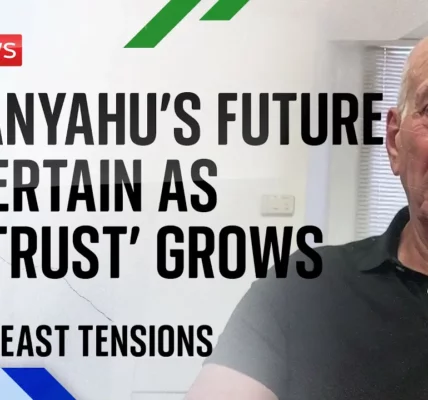Vice President Discusses Economic Policies and Social Issues

This article delves into the Vice President’s recent remarks addressing economic concerns, housing shortages, childcare challenges, and racial justice, emphasizing a vision for an opportunity economy that benefits all Americans.
Introduction
In a recent address, the Vice President engaged with pressing issues that resonate deeply with Americans, particularly focusing on the economy as a primary concern. With a backdrop of historical challenges, including high unemployment rates and public health crises, the Vice President outlined the significant strides made in job creation and economic growth. This article will unpack the key points addressed, including the concept of an opportunity economy, housing affordability, and the vital importance of childcare and elder care support.
The Opportunity Economy: A Vision for Growth
The Vice President articulated a vision for what she termed an “opportunity economy,” where every American has the resources to thrive. This approach seeks to empower individuals to not only survive but thrive economically.
Key Components of the Opportunity Economy
- Job Creation: Over 16 million new jobs have been created, including significant increases in manufacturing jobs.
- Support for Small Businesses: Special emphasis has been placed on aiding black-owned small businesses, fostering an environment for entrepreneurship.
- Healthcare Affordability: The administration has enacted measures to cap insulin prices for seniors, reflecting a commitment to healthcare equity.
This vision also acknowledges the persistent challenges many Americans face, particularly in housing affordability, which is a critical barrier to achieving economic stability.
Addressing Housing Affordability
The Vice President identified the current housing shortage as a significant issue affecting Americans, particularly younger generations. She proposed innovative solutions to tackle this problem head-on.
Proposed Solutions for Housing
- Collaboration with the Private Sector: Engaging home builders through tax incentives to stimulate the construction of new housing.
- First-Time Homebuyer Assistance: Offering $25,000 in down payment assistance to help individuals enter the housing market.
- Long-Term Goals: Aiming to create 3 million new housing units by the end of her first term.
These initiatives aim to restore the belief in the American dream, making homeownership attainable for those who have historically faced barriers.
Childcare and Elder Care: Supporting American Families
Childcare and elder care costs have skyrocketed, placing immense pressure on working families. The Vice President highlighted the need for comprehensive support systems that ensure families can afford quality care without sacrificing their financial stability.
Childcare Affordability Initiatives
- Income Caps: No family should pay more than 7% of their income on childcare.
- Support for Care Providers: Enhancing wages for childcare and elder care providers to reflect the dignity of their work.
- Child Tax Credit Expansion: Proposing to increase the child tax credit to $6,000, particularly benefiting families during the crucial early years of a child’s life.
By addressing these issues, the Vice President aims to create a supportive environment for families, ultimately benefiting the economy at large.
Racial Justice: Economic Opportunities and Equity
The discussion transitioned to racial justice, emphasizing the importance of equitable economic policies that specifically address the needs of marginalized communities. The Vice President underscored her commitment to ensuring that all Americans have access to the economic opportunities they deserve.
Engaging Black Male Voters
Recognizing that some demographics, such as young black men, may feel disconnected from the current economic narrative, the Vice President expressed her intention to earn their trust through actionable policies tailored to their needs.
Conclusion
In conclusion, the Vice President’s address provided a comprehensive overview of her vision for economic recovery, emphasizing the importance of creating an opportunity economy that addresses housing, childcare, and racial justice. The initiatives proposed aim to foster a more inclusive and equitable society where all Americans can thrive. As we move forward, it’s crucial for citizens to engage with these issues, advocating for policies that uplift communities and foster economic growth. Join the conversation and let your voice be heard as we work towards a brighter future for all.
“`




